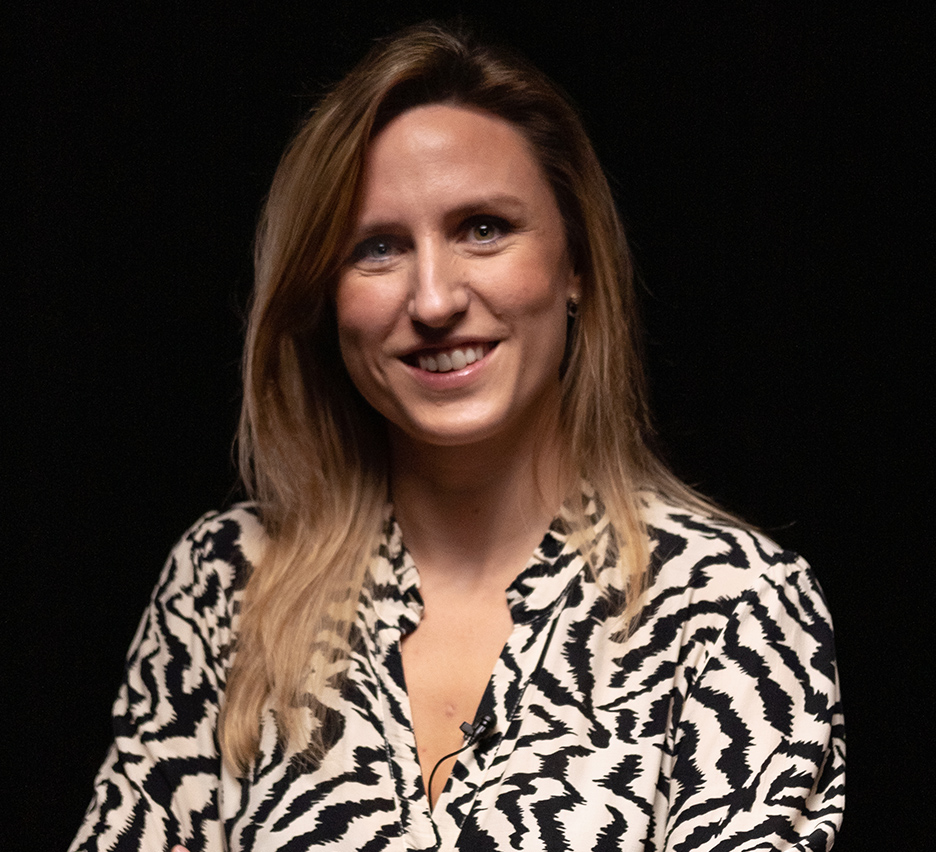Being considered a stranger in a hospital where you are normally a completely known patient
Let’s imagine the following: your baby is 2 months old and suddenly develops kidney failure. It’s the start of a long medical journey with a very specialized approach, which means that you are forced to temporarily stop working. Because this approach is so specialized, you go to many different hospitals. In principle, traveling to Belgium is logistically feasible, but when you as a patient must deal with different hospital networks and therefore also different data centers, you discover that doctors cannot easily find out the medical history of your child.
This is not just a theoretical situation, but the story of Karlien Hollanders.
From one hospital to another hospital
Karlien Hollanders has a degree in pharmacy and worked for various health technology companies until she had to temporarily stop working because her daughter Madelien suddenly fell seriously ill at the age of two months. She has indeed developed complete kidney failure, which is not common for infants.
The search for the cause of this insufficiency began immediately. Finally, the diagnosis was made: primary hyperoxaluria. It meant the start of a long medical journey. A route with a highly specialized approach; Eventually, her daughter Madelien would need a liver and kidney transplant. Due to this medical approach, Karlien and his family were forced to travel to different hospitals all over the Kingdom.

It’s not that we don’t trust a particular hospital or that we want to compare different diagnoses between specialists. Trips to different hospitals were real and compulsory as the choice was limited due to the specialized medical approach.
Karlien Hollanders
Missing data
Karlien had to travel from Antwerp to Ghent to Brussels for two years to provide care for her daughter. It has become a full-time job, but the family has also realized that there is a lot of good care and many specialists in Belgium. As Karlien had to deal with various hospital networks and data centers, she noticed that it was impossible for doctors to keep track of her sick daughter’s medical history.
Data that she herself does not have. With around thirty operations in 3 years, Madelien’s file must now comprise hundreds of pages. That’s a lot of information. Information doctors need to make the correct diagnosis or determine treatment.
Prehistoric
And these needs for information and data put enormous pressure on her as a parent. On the one hand, Karlien is lucky to be bilingual. In Brussels, the specialists spoke little or no Dutch. To keep abreast of everything that would happen to her daughter, she had to understand at least French.
Conversely, some reports are also in Dutch, so they cannot be read (correctly) by some specialists – if these reports are even available. Karlien is now eight years behind on her own medical file and she still must ask Brussels for the paper version (for example of a blood test) to send it to Antwerp. This is no longer possible.
This management is completely prehistoric in my opinion. It is impossible that this is still possible today.
Karlien Hollanders
Share and create
It’s not just about sharing digital data. Data creation (i.e. input or not) is at least as important. Karlien has to take her daughter to the hospital every month where she also underwent her kidney transplant. A hospital where she is well known. At least, that’s what Karlien thought…
They know her daughter in this hospital, Madelien gets the best help there. Until she ended up in the ER with her. She was asked the standard questions, questions which she has already answered several times.
After all, it’s their attending physician at that hospital who knows them like the back of their hand but either forgets to enter data or enters it in the wrong box. The result? You arrive as a completely unknown patient when you are not and due to the many complications and operations it is so important to know who is coming urgently.
For someone who has to be hospitalized so often, it’s incredibly frustrating to be asked the same questions over and over again.
Karlien Hollanders
Everything Karlien went through with her sick daughter during the 3 years she couldn’t work meant that she now represents the voice and supports initiatives such as #1Patient1Record4Belgium. These, but also your own experiences with Belgian health care can drive our movement forward. Only together will we achieve our goal.
Share your story.




Leave a Reply